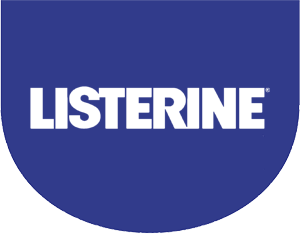Article
I write with reference to the letter entitled ‘Flossing, remoaning and remainia – dentistry in denial’, by a certain Crawford Bain, published in the October issue of Dental Update43(8): 793.
I found it quite amusing that Professor Bain seems to call up a psychological theory which has no sound proof (cognitive dissonance) as evidence to prove that the profession is ‘in denial’ about the seemingly non-existent benefits of flossing. He would have done better to bring into question ‘confirmation bias’,1 which would also tie into the ‘Brexit’ issue and its supporters; the eminent scholars of the ever-popular universities of Google and Facebook, whose algorithms feed your frenzy by supplying links to search terms which agree with previously-held beliefs.
What I didn't find so amusing, however, is the generalization that Professor Bain seems to bestow on the profession as being ‘in denial’ when faced with these meta-analyses which seem to show that flossing confers no benefits. It is a little bit like me assuming that, without ever having met Professor Bain, knowing he supports ‘Brexit’ (it's easy for him you see, in Dubai he'll probably be getting paid in US$) he must fit the stereotype of being spectacled, in the latter third of his life, sport a crop of white hair and have one or two fused crowns on the anterior teeth (group attribution error/stereotype bias). I would like to think that, as professionals, we take responsibility for keeping abreast of scientific developments to further and update our education to ensure that we do our best for our patients.
And as far as making evidence-based medicine the cornerstone of our practice, this is indeed the holy grail, but its limitations at this point are obvious. This is not to mention flawed or indeed downright falsified or misleading studies that we are exposed to from time to time.2 Think Andrew Wakefield and MMR, or search for ‘scientific misconduct’ (ideally on an independent search engine such as DuckDuckGo.com). Even NICE, which I regard as a respectable organization, has changed its position 3 times over the last 10 years on the issue of antibiotic prophylaxis, in the face of the changing understanding of the evidence presented to us. Did NICE, therefore, give us the wrong advice for a number of years or did it do its best given the information available at the time? Fortunately, the issue of advising patients to floss (or not) should have far less serious consequences. This is to say nothing on the sheer volumes of (sometimes conflicting) information that is beamed on us, forcing us to be sceptical by default in a society which has in effect become ‘post-fact’.3
I will keep you guessing as to whether I do or do not floss personally, but I subscribe to the theory that decomposition gases from day-old food detritus that gets caught in between molars is the reason some people don't get on as well as they'd like to in social situations. I will say, however, that I do floss my children's teeth from time to time as this takes around 43.28 seconds for me to carry out with a floss-pick. You can see how, in the bigger scheme of things, where my children are concerned, I am happier to risk wasting my time on flossing than to expose them to increased risk. You could call it a superstition if you like, a bit like me kissing the barrel before I go shooting. But I would much rather floss my children's teeth in vain than wake up in 10 years' time to be told that actually, when you look at the numbers from a different perspective, flossing could have been helpful.
Being such an ardent supporter of evidence-based science I would assume Professor Bain would not routinely recommend the use of parachutes4 when people are faced with a ‘gravitational challenge’, and may suggest our youth indulge in the recreational use of ‘ecstasy.5 Personally, I'd rather my children went horse-riding.
(Still awaiting the £50M a day to be given to the NHS.)

